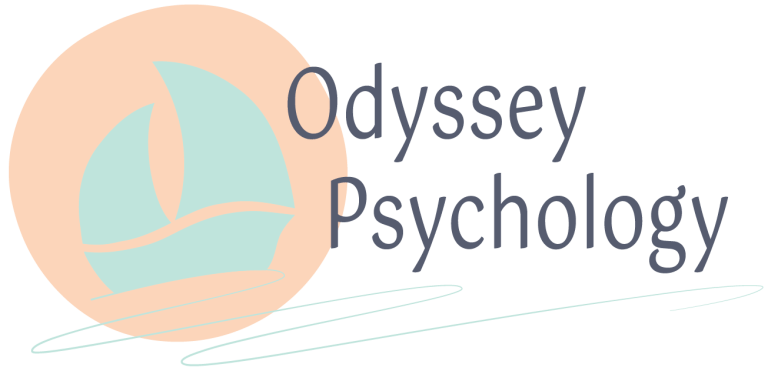Eating Disorders and Disordered Eating

Our Sunshine Coast Based Psychology Clinic Can Help You with Eating Disorders
What is Disordered Eating?
Disordered eating is an umbrella term used to describe irregular eating behaviours that cause anxiety and other issues for the individual but do not meet the criteria for a diagnosed eating disorder.
- Food restriction
- Strict dieting or food rules
- Food labelling (e.g., ‘good’ and ‘bad’)
- ‘Yoyo’ dieting (i.e., circular dieting including periods of weight loss followed by weight gain)
- Food cravings
- Binge eating
- Food aversions
- Food anxiety
- Fear of eating in public
- Guilt after eating
- Obsessing over food choices (e.g., overly focused on nutrition)
- Monitoring food intake
- High level of concern about body shape and/or weight
What is Non-Disorder Eating?
It might be worthwhile to review examples of what non-disorder eating looks like to better distinguish the features of disordered eating. Non-disorder eating is characterised by intuitive and flexible eating that is driven by internal hunger cues.
- Absence of food anxiety
- Use of internal hunger and satiety cues (e.g., eat when hungry and stop eating when full)
- Minimal or no food craving
- Eating behaviour is not driven by strict rules (e.g., being flexible)
- Absence of guilt/shame after eating
- Minimal time is spent on thinking about food (e.g., not ruminating or worrying about food choices)
- Regular meals and snacks throughout the day
- Food choices consisting of a variety of different foods from all/most food groups

DO I HAVE AN EATING DISORDER?
An eating disorder is a mental health diagnosis made by a health professional (e.g., psychologist or psychiatrist), that describes a cluster of disordered eating symptoms. For a diagnosis to be made, the eating disorder symptoms need to be severe, occur on a regular basis, and cause the individual significant distress, health risks, or disruption in daily functioning.
There are several distinct eating disorder diagnoses, each with its own cluster of symptoms. Below is a list of some of the main eating disorders (it is not a complete list):
- Anorexia nervosa
- Bulimia nervosa
- Binge eating disorder
- Avoidant/restrictive food intake disorder (ARFID)
- Other specified feeding or eating disorder (OSFED)
- Orthorexia (this is not an official diagnosis, but it does seem to have a unique symptoms cluster that differs from other eating disorders)
The amount of people suffering from eating disorders has steadily increased over the years. It is estimated that eating disorders currently affect 8.4% of women and 2.2% of men.
There are many different factors that contribute to disordered eating and the development of an eating disorder. Many of these factors are difficult to avoid, such as the present culture (particularity in the West) that we find ourselves embedded in.
In the past two decades, there has been increased focus and concern on the rising ‘obesity pandemic’, which has driven changes in sociocultural norms regarding nutrition/diets and body image (i.e., ‘thin/muscular ideal’). The messages about diet and body image have been portrayed largely through media, which has increased exponentially since the popularisation of social media platforms. Research has found that greater exposure to media is associated with poorer body image which is further associated with an increased risk of developing an eating disorder.
Overwhelming amounts of contradictory information about nutrition and eating bombard us daily. It’s no wonder that people often find themselves feeling confused and anxious about food choices and eating behaviour.
There is hope for recovery
Eating Disorder Symptoms
Below is a list of symptoms that a person with an eating disorder might experience. The eating disorder symptoms are grouped per diagnosis, such as anorexia nervosa, bulimia nervosa, binge eating disorder, and orthorexia. Orthorexia is not an official eating disorder diagnosis; however, it has its own unique cluster of symptoms that differ from the other eating disorder. Unlike other eating disorder that involve a preoccupation with body image, orthorexia is characterised by a preoccupation with health and nutrition.
It is important to remember that a diagnosed eating disorder will include a cluster of symptoms. Most people are likely to experience one or two of the symptoms below at some time in their life.
- Self-evaluation is overly based on weight and/or shape
- Rapid weight loss
- Intense dissatisfaction about body appearance
- Fear of gaining weight or change of body appearance
- Restriction of food intake
- Compulsion to engage in harmful activities to reduce weight (e.g., vomiting, using laxatives or other medications, excessive exercise, or restricting food intake).
- Strict food rules and feelings of guilt when food rules are broken
- Preoccupation with food and food related activities
- Anxiety around food (e.g., mealtimes, social events, etc.)
- Emotional fluctuations
- Physical fatigue and low energy
- Light-headedness when standing after sitting or lying down
- Abnormality in menstruation cycle or amenorrhea (i.e., absence of menstruation)
- Difficulties thinking clearly (e.g., ‘brain fog’ or fussy thinking)
- Secretive behaviour around food
- Self-evaluation is overly based on weight and/or shape
- Low self-esteem
- A sense of loss of control over-eating
- Consumption of large quantities of food (i.e., binge eating)
- Feelings of guilt after a ‘binge’ episode
- Compulsion to engage in harmful activities to reduce weight (e.g., vomiting, using laxatives or other medications, excessive exercise, or restricting food intake)
- Intense food cravings
- Eating to manage anxiety or other unpleasant emotions
- Strict food rules and feelings of guilt when food rules are broken
- Intense dissatisfaction about body appearance
- Face swelling and fluffiness
- Tooth decay
- Secretive behaviour around food
- Consumption of large quantities of food (i.e., binge eating)
- A sense of loss of control overeating
- Feelings of guild after a ‘binge’ episode
- Eating large amounts of food when not physically hungry or
- Eating to the point of feeling uncomfortably full
- Being secretive about eating. Avoiding eating in front of others due to embarrassment
- Intense food cravings
- Eating to manage anxiety or other unpleasant emotions
- Low self-esteem
- Secretive behaviour around food
- Preoccupation with food and nutrition
- Frequent checking of ingredients
- Inability to consume foods without knowing the ingredients
- Strict food rules
- Food labelling (e.g., ‘good’ and ‘bad’)
- Restriction of certain food groups (e.g., bread, animal products, oils, etc.) or nutrient groups (e.g., gluten, fat, sugar, salt, etc.)
- Anxiety and/or guilt after a food rule is broken
- Avoidance of social situation due to strict food rules
- A compulsion to include certain foods or supplements into one’s diet/meals and feelings of anxiety or distress when not able to do so
- Fear of negative health consequences if the food rules are not followed
- Significant time spend monitoring food intake and learning about nutrition (e.g., searching the internet, listening to podcasts, etc.)
Reasons Why People Seek Therapy for Eating Disorders
We will all engage in some disordered eating behaviour in our lives (e.g., eating too much food at birthday events, Christmas time, or other similar festivities). Having one or more eating disorder behaviours or symptoms does not necessarily mean you ‘have an eating disorder’ or that there is a problem. However, if you do experience several eating disorder symptoms for an extended period and they interfere with daily life or cause you significant distress, then it might be useful to reach out for help.
Disordered eating behaviour can be a slippery slope, quickly turning from a brief diet or gym challenge to increasingly strict food rules and preoccupation with eating, shape, and weight. Food restriction and rapid and/or prolonged weight loss can be detrimental to health as it starves our brain of the fuel it needs to function. When our brain does not get the energy it needs, it is more difficult to think clearly and rationally (comparable to someone very tired or drunk). It gets more difficult to be self-reflective and make good decisions for ourselves. It is not uncommon for people with an eating disorder, such as anorexia nervosa, to be referred to therapy by a general practitioner who has observed physical health problems. Or they may be brought by a loved one concerned about their health and safety.
Some other common reasons people start treatment for disordered eating and eating disorders include:
- having an unhealthy relationship with food;
- being overly concerned with body image, causing stress and low self-esteem;
- feeling powerless or lack of control; and
- feeling isolated from family and friends.


How Psychology Treatment and Therapy Can Help with Eating Disorders
We understand that the first step towards starting therapy can be challenging. Acknowledging that things are not quite right and asking for help is a crucial step towards taking back control of your life.
If you’re feeling guilt, shame, hopelessness, high self-standards, or self-criticism, know that you’re not alone. We are here to help you navigate through the complexities of your eating disorder and develop healthy coping strategies.
Our evidence-based approach to eating disorder treatment can help you manage your emotions, reduce anxiety around food, improve your eating habits, and develop confidence and self-esteem. Our therapy sessions also aim to reduce food cravings and the control food has over your life. One of the main goals of therapy for eating disorders is to help you and heal your relationship with food and your body.
If you’re ready to start your journey towards recovery, contact us today to schedule an appointment. We are here to support and guide you every step of the way.


Eating Disorder Treatment Options
There are several evidence-based treatment options available for individuals with eating disorders, and the best approach for you will depend on various factors. These include the type and severity of your eating disorder symptoms, your age, support network, goals for therapy, and treatment preferences. During your first appointment, your psychologist will consider your eating disorder symptoms and severity, as well as your goals for therapy.
We offer several types of treatment approaches for eating disorders, including Enhanced Cognitive Behavioural Therapy (CBT-E), Specialist Supportive Clinical Management (SSCM), and Intensive Short-Term Dynamic Psychotherapy (ISTDP). If you’re ready to take the first step towards recovery, we’re here to help. Contact us today to schedule an appointment and start your journey towards healing. Your psychologist will work with you to determine the best treatment approach for your unique needs.
Enhanced Cognitive Behavioural Therapy (CBE-E) is one of the most widely used therapies for treating eating disorders. CBT-E has a large evidence base for treating all types of eating disorders with moderate success with adults and older adolescents.
The focus of CBT-E is to assist the person with an eating disorder to understand the relationship between their thoughts, emotions, physical sensations, and behaviours. This helps address unhelpful thinking styles and maladaptive behaviours that are causing distress. CBT-E usually take between 20-40 session depending on the severity and complexity of the symptoms.
Specialist Supportive Clinical Management (SSCM) is a relatively new approach to treating eating disorders. It has a growing body of evidence for treating adults with anorexia nervosa. SSCM is made up of two core elements: 1). Clinical management which focuses on resuming normal eating and weight management; and 2). Supportive therapy which focuses on relevant life issues the individual is struggling with. SSCM can take between 20-40 session depending on the severity and complexity of the symptoms. SSCM offers more flexibility than some other types of therapy for eating disorders.
Intensive Short-Term Dynamic Psychotherapy (ISTDP) is an emotionally focused and experiential based therapy belonging to the psychodynamic therapy family. The aim of ISTDP is to explore and understand the underlying emotional conflicts that are causing anxiety and eating disorder symptoms. ISTDP views disordered eating behaviour as a function of an underlying issue, which is the primary focus of therapy.
Currently, there is minimal published research for the effectiveness of ISTDP for treating eating disorders. However, the existing research has shown benefits of emotional focused therapy for binge eating disorder and that psychodynamic based therapy is as effective as CBT based therapy for recover of anorexia nervosa and bulimia nervosa.
Family Based Treatment (FBT) is the leading therapeutic approach for children and adolescents with an eating disorder. FBT is an intensive therapy requiring the whole family involvement, with the primary focus on weight restoration in the young person with an eating disorder. FBT is mostly used for treating anorexia but there is some evidence that it may also be effective for children and adolescents with bulimia nervosa. FBT is a very structured therapy that usually takes about 20 sessions.
Are you ready to take back control?
We are here to help. You can contact us by phone or email if you are ready to start therapy or if you would like to find out more about how therapy can help with eating disorders or disordered eating.
Telehealth and Online Therapy for Eating Disorders
Telehealth therapy for eating disorders and disordered eating may be available in some circumstances if getting to the clinic in Maroochydore, on the Sunshine Coast, is too difficult (e.g., you live too far away or you don’t have transportation). Telehealth is not suitable for all everyone suffering from an eating disorder, specifically for people with low weight and severe food restriction. Please contact us for details if you would like to learn more or to schedule an appointment.
